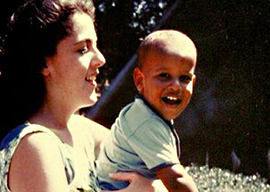
February 06, 2013

A young English teacher at a public high school in New Jersey emails me:
I”m just in my third year of teaching, so I get stuck with the remedial classes. I mean, what are you going to do? But the stress of dealing with bad behavior is wearing me down. I ask myself why the old teacher’s honors classes are full of well-behaved students, while mine are”I got to say it”bastards.
After dozens of parent conferences, maybe I”ve figured it out. My students are bastards. Literally. My remedial kids come from chaotic families. The honors teachers meet with Prof. and Dr. Smith. But I meet with Ms. Jones and her four misbehaving kids by three baby daddies, none of whom seem to be around.
I used to think all those ancient putdowns of poor little illegitimate children were awful, and we”re so much better than they were back then. But, I”m starting to think they knew something we don”t.
Two out of five children are now born out of wedlock, so, uh…get used to it, America!
But that raises the perennial question of what percentage of children born in wedlock were actually fathered by someone else. Few topics generate more heat and less light than “mother’s baby, father’s maybe.” The press enjoys citing shockingly high percentages of misattributed paternity, such as ten or even thirty percent. Yet sober studies tend to show very low percentages in wealthy countries, even below one percent.
One reason for the wide array of estimates is the difficulty of pulling together a truly representative sample. Commercial DNA testing firms that make their money off men suspicious of their women frequently report 25 to 30 percent rates of cuckoo’s eggs.
In contrast, a recent German study of parents who volunteered as potential bone-marrow donors for their leukemia-stricken children found only nine of the 971 men (0.94 percent) tested weren”t the biological fathers.
Similarly, in 2000, Oxford geneticist Bryan Sykes sent test tubes and swabs to 250 other Englishmen named Sykes to see if they shared his Y chromosome. Thirty percent of the 61 who responded did, which suggests that ever since one Englishman adopted the surname Sykes around the year 1300, the rate of “non-paternity events“ has averaged only 1.3 percent per generation.
Unfortunately, we likely can”t know the rate of non-paternity events among the three-fourths of English surnames that have gone extinct.
Sykes believes the name “Sykes,” unlike, say, “Smith,” originated just once in England about 700 years ago. By now it’s a pretty common name, suggesting that the ancestors of today’s Sykes did well at surviving in a quasi-Malthusian environment.